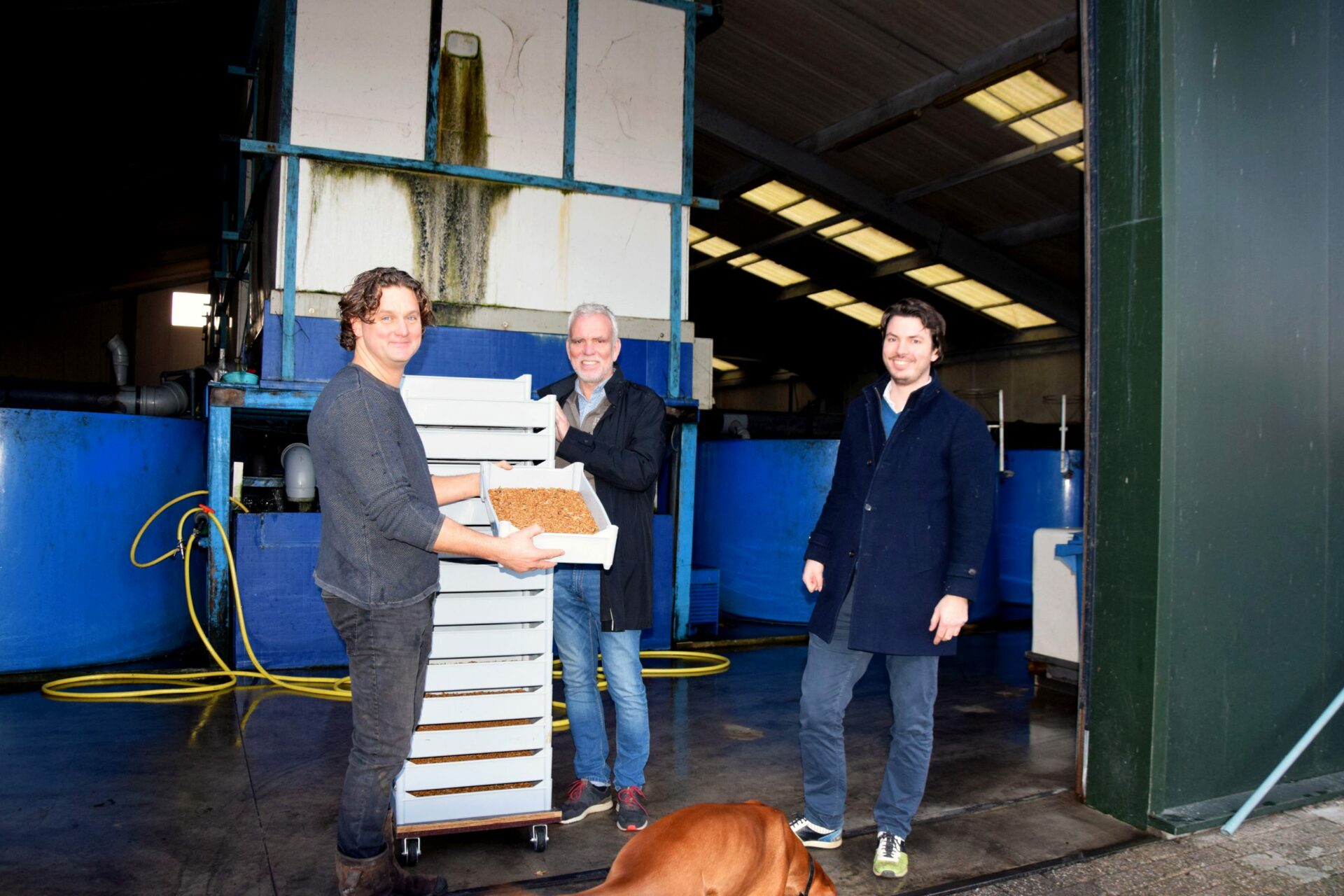Local mealworms may make an important contribution to making Dutch fish farming more sustainable. The insects can be a sustainable, locally grown alternative to, among other things, soy in fish feed. In an innovative research project, two companies in the rural part of The Netherlands are exploring the possibilities.
“Fish can be grown very well in the Netherlands, which is much more sustainable than importing fish from other parts of the world. To make fish farming truly sustainable, it is important that the feed is also sustainable, says Rolf Woolderink of Twentevis. Now this includes imported soy and fish meal. Twentevis is therefore investigating, together with Winsect, the possibilities of mealworms as a regional, responsible fish feed. “If possible, I will stop using soy completely.”
“Mealworms grow very efficiently and emit hardly any CO2,” says Henk Haaring – owner of Winsect. “In addition, fish like to eat mealworms, which are also used as bait by hobby fishermen. We are therefore hopeful that the mealworms we produce will be a good source of protein for the trout that Twentevis breeds in Groenlo, The Netherlands. ” The companies are now investigating in a number of trials whether the trout grows well on a mealworm diet and what the influence is on the nutritional values of the fish.
The first mealworms have now been delivered and fed to the trout that is part of the trial. “It is great to work together in this way within the region to make fish farming more sustainable and to give a new impulse to food production our region”, says Woolderink. “This project also fits perfectly with an entrepreneurial, innovative region such as the Netherlands,” Haaring adds. “Both fish farming and the breeding of insects are sectors with enormous potential, especially with the current focus on alternative protein production and the circular economy. We expect these sectors to become just as relevant as poultry and pigs now. ”

